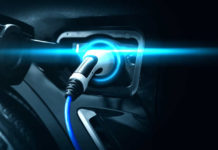Volvo expecting a one-third rise in sales
The Swedish car manufacturer Volvo Car (Thailand) recently announced that it expects sales to grow by around 30 percent during 2016, aiming to sell around 1,300 vehicles across its range.
Volvo Car sales reached a peak in Thailand in 2012 when 1,854 vehicles were sold. Since then the trend has been downwards, selling 1,603 vehicles in 2013, 1,260 in 2014 and just 1,000 in 2015.
Anette Andersson, the managing director of Volvo Car, came into the position in July last year and said the company would engage in a product-led sales drive which would aim at doubling Volvo sales in the country by 2017. Unfortunately, due to the very poor results returned in 2015, that plan to double sales has now been pushed back to a more realistic 2018 time frame.
Ms Andersson said Volvo would need to introduce more competitive models into its Thailand line-up over the 2016 to 2018 period in order to drive sales up.
The first of these new product lines is the XC90, a sports-utility vehicle (SUV), which is available in diesel as well as plug-in hybrid platforms. It is Volvo’s first eco-friendly model for the Thailand market and is priced between 4.89 to 5.99 million baht.
The company has also said it will introduce two other models into the Thai marketplace over the next few years: the luxury S90 saloon and V90 wagon.
Headquartered in Gothenburg, Sweden, Volvo has its Asean facility in Malaysia where the production capacity is presently 3,000 models a year. It makes seven models which are sold across Thailand, Malaysia and Indonesia.
Ms Andersson has suggested the luxury car market in Thailand will grow by under 10 percent this year, from 23,000 vehicles last year.
Volvo currently ranks third on the luxury car list in Thailand, behind Mercedes-Benz and BMW, which between them control over 90 percent of the market.
Merceds-Benz said its 2015 sales reached an all-time high of 12,776 passenger and commercial vehicles. In 2014 the German manufacturer had sold 11,328 units.
BMW Group said its sales reached a record 8,768 vehicles in 2015, a five percent increase over the previous year.
These higher sales figures may well have been achieved because of the 2016 introduction of a new excise tax which is expected to make luxury vehicles even more expensive.
The new tax is based on carbon dioxide emissions, E85 gasohol compatibility and fuel efficiency rather than engine size. Obviously the new excise structure is designed to encourage motor vehicle manufacturers to make vehicles compatible with E85 gasohol and produce eco-cars at reasonable prices.









